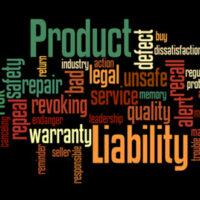What Types of Defective Products Cause the Most Injuries?

Every year, consumers spend significant sums on a range of products, including everything from kitchen appliances and toys to clothing and tools. While many of these products are properly designed and produced and so pose no danger to consumers, others are not so carefully vetted, which can have devastating consequences for unwary users. Whether defective in their design or production, faulty products can cause serious injuries, making it especially important for those who are injured by consumer products, to speak with an experienced Fort Lauderdale product liability attorney who can help them seek compensation for their medical bills and pain and suffering.
Kitchen Tools
Of the many types of consumer products that cause injury to users, kitchen tools top the list as some of the most dangerous. This is largely due to the fact that many kitchen gadgets have electrical components and so can cause electrocution and fires, while others have sharp attachments or dangerous parts, all of which can cause injury if they fail to work properly. Most kitchen tool-related consumer injuries involve the following products:
- Pressure cookers;
- Blenders;
- Mandoline slicers;
- Garbage disposals;
- Food processors; and
- Meat grinders and slicers.
Injuries caused by these types of defective products can be serious and include everything from burns to lacerations, which can be both difficult and expensive to treat.
Medical Equipment
Although all medical devices go through rigorous testing before they can be sold to or used on patients, injuries caused by defective medical devices still occur, with the most common involving:
- Knee or hip implants, which can cause metal poisoning and cobalt toxicity;
- Transvaginal mesh, which is a type of surgical netting that can lead to organ perforation;
- Blood clot filters, which were designed to stop blood clots from traveling to the lungs, but can puncture the tissues and organs if they become broken or dislodged;
- Defibrillators, which are more commonly known as pacemakers and are used to treat heart disease, but can cause heart failure if defectively designed; and
- Drug-coated stents, which are small metal or plastic tubes that can be inserted into an artery or blood vessel to prevent blockages and have been linked to infections, internal bleeding, and allergic reactions.
To learn more about who can be held liable for the defective design or manufacturing of these types of medical devices, please contact our legal team today.
Vehicle Parts
Although most car accidents are the result of driver error, a surprisingly high number of collisions can be linked to defective car parts, including:
- Tires that cause dangerous skidding or sliding;
- Wheels that crack under pressure and lead to swerving or a loss of control;
- Wiring systems that can cause fires or erratic performance;
- Air bags that activate unexpectedly or that fail to activate at all;
- Steering columns that snap or break while driving;
- Brakes that fail to engage;
- Seat belts that fail to protect occupants or that cause serious injuries; and
- Windshield wipers that inhibit visibility.
Vehicle part manufacturers whose failure to use reasonable care in designing or producing these kinds of parts can often be held liable for resulting consumer injuries.
Contact Our Fort Lauderdale Office Today
To speak with an experienced product liability lawyer about recovering compensation for your own injuries, please call Boone & Davis at 954-566-9919 today.
